Ditapis dengan
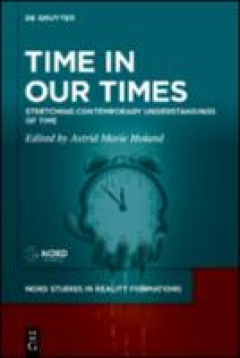
E-book Time in Our Times: Stretching Contemporary Understandings of Time
What is happening to perceptions of time, durability and reality in the 21th century? This anthology explores a diversity of uncommon insights about time, as seen from our historical and geographical standpoint. It sheds new light on how construction, perception and regulation of time influences a person’s whole being in the world, collectively and individually, in the short and long run, fro…
- Edisi
- -
- ISBN/ISSN
- 9783111428970
- Deskripsi Fisik
- 357 halaman
- Judul Seri
- -
- No. Panggil
- 115 HOL t
E-book Encyclopedia of Time: Science, Philosophy, Theology, & Culture
Surveying the major facts, concepts, theories, and speculations that infuse our present comprehension of time, the Encyclopedia of Time: Science, Philosophy, Theology, & Culture explores the contributions of scientists, philosophers, theologians, and creative artists from ancient times to the present. By drawing together into one collection ideas from scholars around the globe and in a wide ran…
- Edisi
- -
- ISBN/ISSN
- 9781412941648
- Deskripsi Fisik
- 1576 halaman, ilus.
- Judul Seri
- -
- No. Panggil
- 115.03 BIR e
E-book Time for the Ancients : Measurement, Theory, Experience
n this chapterIexploreGraeco-Roman techniques of, and attitudes towards,time measurement,from the twin perspectivesofeverydaylife andmedicine. Isurvey literary and archaeological evidence for the twomain available technol-ogies of timemeasurement,sundials and water-clocks, and consider what thisevidence tells us about their differential accessibility and context of use, andabout Roman attitudes…
- Edisi
- -
- ISBN/ISSN
- 9783110752397
- Deskripsi Fisik
- 205 hlm
- Judul Seri
- -
- No. Panggil
- 115 SIN t
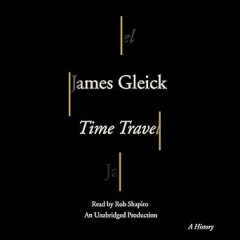
E-book Time Travel: A History
Gleick's story begins at the turn of the 20th century, with the young H. G. Wells writing and rewriting the fantastic tale that became his first book, an international sensation: The Time Machine. A host of forces were converging to transmute the human understanding of time, some philosophical and some technological - the electric telegraph, the steam railroad, the discovery of buried civilizat…
- Edisi
- -
- ISBN/ISSN
- -
- Deskripsi Fisik
- 236 halaman
- Judul Seri
- -
- No. Panggil
- 115 GLE t
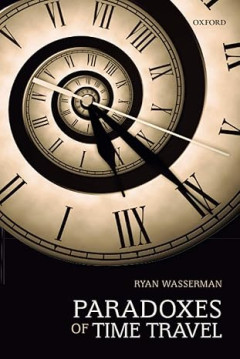
E-book Paradoxes of Time Travel
This volume explores a wide-range of puzzles such as the grandfather paradox, the bootstrapping paradox, and the twin paradox of special relativity. Ryan Wasserman draws out their implications for our understanding of time, tense, freedom, fatalism, causation, counterfactuals, laws of nature, persistence, change, and mereology. Paradoxes of Time Travel is written in an accessible style, and fil…
- Edisi
- -
- ISBN/ISSN
- 9780198793335
- Deskripsi Fisik
- 261 halaman
- Judul Seri
- -
- No. Panggil
- 115 WAS p
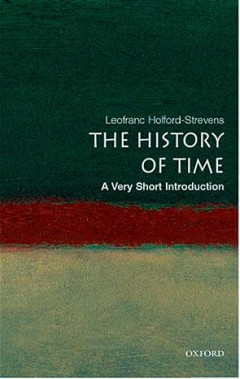
E-book The History of Time: A Very Short Introduction
Why do we measure time in the way that we do? Why is a week seven days long? At what point did minutes and seconds come into being? Why are some calendars lunar and some solar? The organization of time into hours, days, months, and years seems immutable and universal, but is actually far more artificial than most people realize. For example, the French Revolution resulted in a restructuring of…
- Edisi
- -
- ISBN/ISSN
- 0192804995
- Deskripsi Fisik
- 161 halaman
- Judul Seri
- -
- No. Panggil
- 115 HOL t 002826-eB-0122
E-book A Geography of Time : The Temporal Misadventures of a Social Psycholog…
My class was scheduled from ten until noon. Many students came late. Several arrived after 10:30. A few showed up closer to eleven. Two came after that. All of the latecomers wore the relaxed smiles I later came to enjoy. Each one greeted me, and although a few apologized briefly, none seemed terribly concerned about being late. They assumed that I understood. That Brazilians would arrive late …
- Edisi
- -
- ISBN/ISSN
- 9781851684656
- Deskripsi Fisik
- 280 hlm
- Judul Seri
- -
- No. Panggil
- 115 LEV a
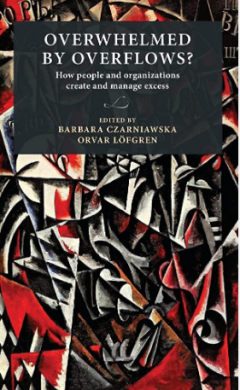
E-book Overwhelmed by overflows? : How people and organizations create and ma…
This transdisciplinary volume investigates the ways in which people and organisations deal with the overflow of information, goods or choices. It explores two main themes: the emergence of overflows and the management of overflows, in the sense of either controlling or coping with them. Individual chapters show the management of overflows taking place in various social settings, periods and pol…
- Edisi
- -
- ISBN/ISSN
- 9789198469813
- Deskripsi Fisik
- xi, 212 hlm : ill.
- Judul Seri
- -
- No. Panggil
- 658.403 CZA o
E-book Antiquity and Photography : Early Views of Ancient Mediterranean Sites
At their first public demonstration in Paris in 1839, photographs seemed nothing short of miraculous in their ability to record a mirror image of actuality. From the moment its inventors promoted the camera's usefulness for documenting Egyptian hieroglyphs, photography has played a decisive role in the interpretation of antiquity. Early photographers focused their lenses on marble-pillared temp…
- Edisi
- -
- ISBN/ISSN
- 9780892368051
- Deskripsi Fisik
- -
- Judul Seri
- -
- No. Panggil
- 709.01 LYO a
 Karya Umum
Karya Umum  Filsafat
Filsafat  Agama
Agama  Ilmu-ilmu Sosial
Ilmu-ilmu Sosial  Bahasa
Bahasa  Ilmu-ilmu Murni
Ilmu-ilmu Murni  Ilmu-ilmu Terapan
Ilmu-ilmu Terapan  Kesenian, Hiburan, dan Olahraga
Kesenian, Hiburan, dan Olahraga  Kesusastraan
Kesusastraan  Geografi dan Sejarah
Geografi dan Sejarah